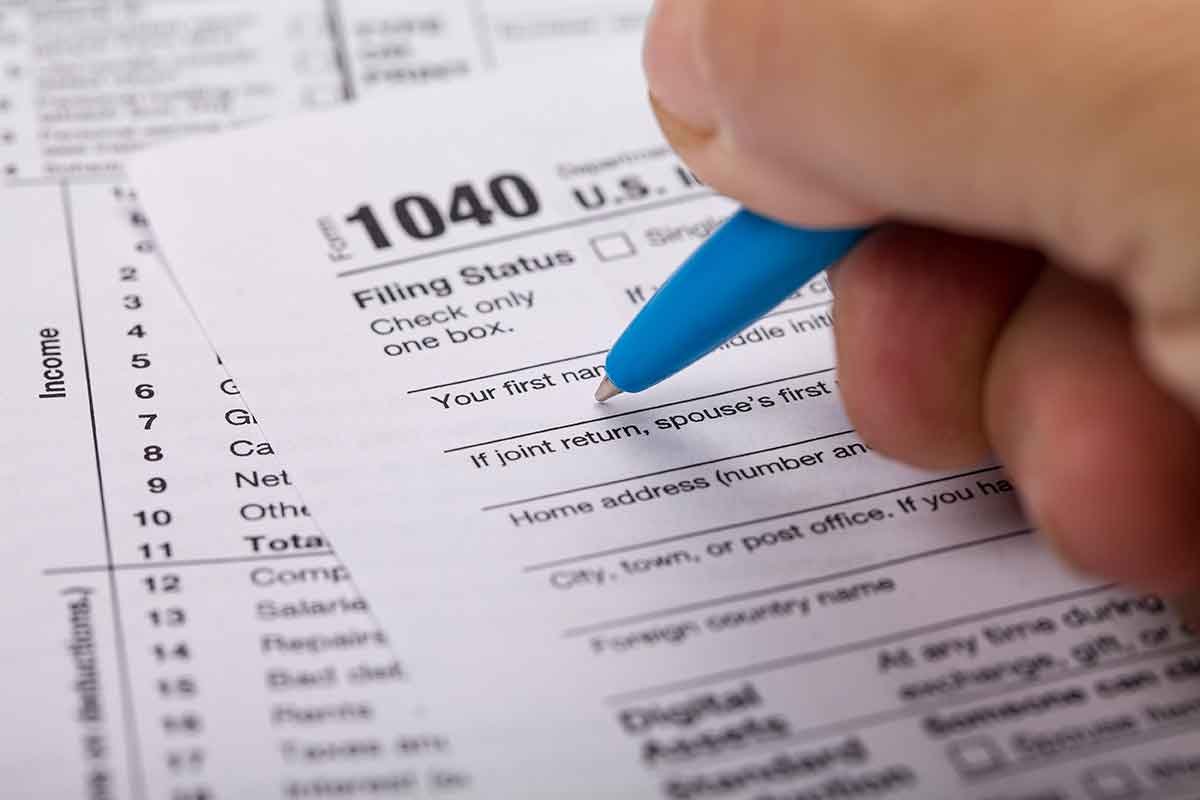What Would Happen if You Didn’t File Your Taxes?


written by Claudia Grant

reviewed by Robin T Young
Are you running late on your taxes? Survey results reveal that one-third of Americans leave filing their taxes to the last minute.
If you’re falling behind on your tax filing, you might be wondering, what would happen if you don’t file your taxes? Or maybe you’ve failed to file your taxes already, and are worrying about the repercussions.
Taxes can be a big source of anxiety for many people, even those who don’t owe the IRS anything. Ironically, this anxiety is often what triggers procrastination around filing. Once someone has missed a filing date, dread of what this might cause can hold them back even further from filing taxes.
Although there are repercussions to failing to file your taxes, rest assured that the IRS won’t lock you up for filing a few days late!
If you’re paralyzed at the thought of what failure to file taxes can cause—take a deep breath and keep reading.
The Penalty for Failing to File Your Taxes
If you file your taxes late, the IRS will impose a late filing fee. Currently, the late filing fee is 5% of the taxes you owe. This penalty is triggered each month after tax day. The IRS caps this penalty at 25% of the taxes you owe, however, there is an additional penalty you might pay.
Taxpayers who still don’t file their taxes within 60 days of the April tax date are subject to a minimum penalty of $210 or 100% of their unpaid taxes, whichever is less.
So, for instance, If you owed $195 in taxes, you’d have to pay $390 ($195 + $195). If you owed $360 in taxes, you would need to pay the $210 penalty, and your total tax bill would be $570.
Failing to File When You Don’t Owe Taxes
Want to hear some good news? If you don’t owe any taxes—or are due a refund, then the above penalties don’t apply to you.
If you owe $0 (or are due for a refund) you aren’t required to file, and there is no penalty for late filing if you do decide to file after the deadline.
The only thing to be aware of is that if you’re owed a refund, you can’t claim it after more than three years. To get your refund you need to file a return within three years of the associated tax date.
Also, the IRS won’t pay you any interest on the money they owe you. So it’s in your best interest to file as soon as possible if you are due for a refund.
Special Exceptions
There are some specific situations where the IRS will waive late filing penalties. These include:
- Disaster victim status
- Military service members in combat zones
If you live and work outside of the US and Puerto Rico, you will also have more time to file and pay your taxes.

Filing for an Extension
If time is running out for you to file your taxes, the best thing to do is apply for an extension. As long as you do this before tax day, which is usually April 15, the IRS will grant you an extra 6 months in which to file your taxes.
Not filing for an extension is one of the easiest tax mistakes to avoid. So make sure you take advantage of this feature if you feel like you need more time to file.
Filing for an extension is relatively straightforward, and you can either do it online or via post. To apply, you will need to fill out IRS Form 4868, and submit it to the IRS before the April filing deadline.
However, there is one important thing to be aware of when you file for an extension. Filing for an extension gives you more time to file, but it doesn’t give you more time to pay any taxes that might be due.
If you fail to pay before the deadline, the IRS will charge you interest. The best way to avoid this is to estimate how much you owe and then pay this over. If you estimate on the high side, the IRS will refund you the extra amount.
The Penalties for Failing to Pay Your Taxes
What happens if you did file your taxes, but are behind on paying them? Funnily enough, the IRS charges a higher penalty for failure to file than failure to pay.
If you filed and you owe money on your tax return, you’ll be charged a penalty of 0.5% of your total tax bill each month. This is 10 x less than if you didn’t file taxes.
This penalty is also capped at 25% of your total tax bill.
Keep in mind that if you failed to file your taxes, the 0.5% late paying penalty will be triggered along with the 5% late filing penalty.
If you’re wondering how long it takes for the 0.5% penalty to kick in, it starts one day after your tax bill is due. The interest compounds on a daily basis until you pay off the owed taxes in full.
Installment Agreements
If you are unable to meet your tax bill all at once, you can apply for an installment agreement with the IRS. If you are successful, you’ll still have to pay interest. However, the interest you’ll pay under an installment agreement is 0.25%, which is half that of the standard late-payment penalty.
The Worst That Can Happen
Are you wondering what is the very worst that can happen if you don’t file your taxes? If you don’t file during tax season, you could face penalties of up to 25%, or wind up paying double the tax you originally owed if you don’t file for more than 60 days.
If you don’t make any effort to pay your taxes, the government is entitled to garnish your wages and place liens on your property. At the very worst, the IRS can take you to court, and if you are found guilty you could face jail time.
Are You in Need of Tax Settlement Services?
Are you late to file your taxes this year? Or maybe this isn’t the only tax season you’re worried about?
Whether you’re running behind on filing taxes this year, or didn’t file taxes for more than one tax season and are worried about the legal repercussions—we can help.
If you are in need of tax settlement services, contact us today via our website or call us on (877) 469-1651.










